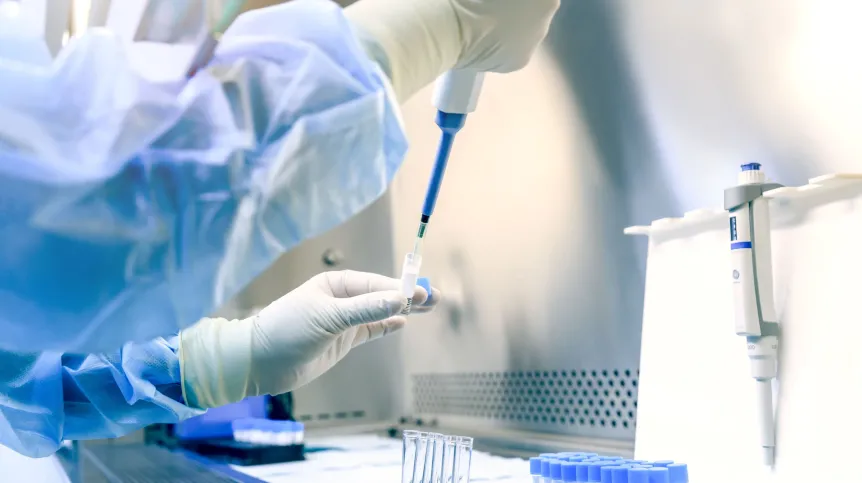
Gdańsk specialists have developed an innovative fluid for storing organs and increasing the effectiveness of their transplantation.
Called Transmedium Transplant Fluid (TTF), and especially directed at kidneys, the new process will improve the patients’ quality of life as the transplanted organs will be in better condition.
Successful transplantation depends not only on the skills of the surgical team, but also on the quality of the donor organ, which, in turn, largely depends on how the organ had been stored before the procedure.
Dr. Marzena Paluch-Skowrońska, an expert in the design, implementation and marketing of new technologies in the field of Life Science, Vice President for R&D at Transmedium Sp. z o.o. said: “The composition of TTF will reduce the percentage of possible complications and thus increase the probability of success, which may be of key importance in clinically difficult cases.”
The duration of ischaemia under conditions of hypothermia (cooling) of organs is of key importance. The innovative TTF formula is based on the composition of substances that improve the effectiveness of this process during cold renal hypothermia and have anti-inflammatory, antiviral and protective effects.
Professor Michał Woźniak, one of the inventors of TTF, head of the Chair and Department of Medical Chemistry of the Medical University of Gdańsk said: “The breakthrough competitive advantage of TTF over other fluids is its cytoprotective function, responsible at the cellular level for the correct structuring and stabilization of the cytoskeleton (intracellular protein structures ensuring the spatial and dynamic organization of the cell). It has a greater protective potential for transplanted organs, unique bioprotective properties, including multifactorial antioxidative and protective properties against free radicals. TTF also reduces the adverse chemical processes taking place in the tissues of the stored organ, including undesirable toxic effects or cell swelling. TTF also provides maximum capacity for endothelial cell regeneration.”
Studies have shown that TTF makes the transplanted organ function faster after surgery. Currently, 3 to 40 percent kidneys require several weeks of dialysis after implantation. The new fluid may significantly reduce this percentage and, above all, improve the quality of life of many patients after transplantation. Currently used fluids require supplementing them with an additional ingredient during the transplantation, which makes the procedure difficult. TTF is also extremely easy to store. The recommended temperature of 4-25 degrees C can be provided by a medical device storage system available in every hospital.
The time between the collection of a heart, lung or intestine and transplantation may not exceed 4-6 hours. The kidney can be stored the longest, up to 40 hours.
Dr. Paluch-Skowrońska said: “TTF creates an environment similar to natural immersion in the intracellular fluid and guarantees the highest quality of protection and, consequently, also extends the possible organ storage time. And although surgeons will always strive to shorten the period from donation to implantation, this feature of TTF gives them additional time for unforeseen, random situations.”
The University Clinical Centre in Gdańsk is one of the leading transplant centres in Poland. Since 1980, the centre's doctors have performed over 2,000 kidney transplants. The TTF fluid was granted a domestic patent (by the Polish Patent Office) and an international patent (European Patent Office).
Professor Michał Woźniak is an expert in the field of medical chemistry. He is involved in research on the mechanisms of free radical signalling in the pathogenesis of human diseases, including acute pancreatitis, cancer and the aging process. He has published over 150 original research papers in international peer-reviewed journals with a biochemical and clinical profile. He conducted scientific research and lectured in Nagoya (Japan), Ancona (Italy), Bradford (UK) and Antwerp (Belgium).
Professor Ryszard Tomasz Smoleński, head of the Chair and Department of Biochemistry at the Medical University of Gdańsk, is also involved in the project. The specialist deals with the metabolism of nucleotides and energy changes in the heart. He led the Heart Metabolism Research Group at the Heart Science Centre, Imperial College London. He collaborates with research centres in the UK, Germany, the Netherlands, Italy and the US. He worked on the preparation of new procedures for the protection of organs for transplantation during transport.
The third originator of the TTF fluid is Dr. Narzyst Knap, assistant professor at the Department of Medical Chemistry of the Medical University of Gdańsk. He conducts research on the broadly understood oxidative stress in many diseases, such as cancer and chronic renal failure. He also deals with computational chemistry methods related to the assessment of the potential of natural metabolites and xenobiotics, aimed at searching for and designing new drugs and their carriers.
The scientific expert in the field of clinical and surgical aspects of transplantation in the work on the fluid formula is Professor Zbigniew Śledziński, retired Head of the Department and Clinic of General, Endocrine and Transplant Surgery at the Medical University of Gdańsk. He is a recognized expert in the field of organ transplantation and has made a great contribution to its development in Gdańsk. His efforts led to the opening of the Liver Transplant Centre at the University Clinical Centre in Gdańsk. For many years he was a provincial consultant for clinical transplantation.
PAP - Science in Poland
zbw/ ekr/ kap/
tr. RL













